Power swings back to unions, workers under Labor
A fight is brewing over legislation business says goes too far but unions say is well overdue. It’s undeniable though decisive changes have been made.
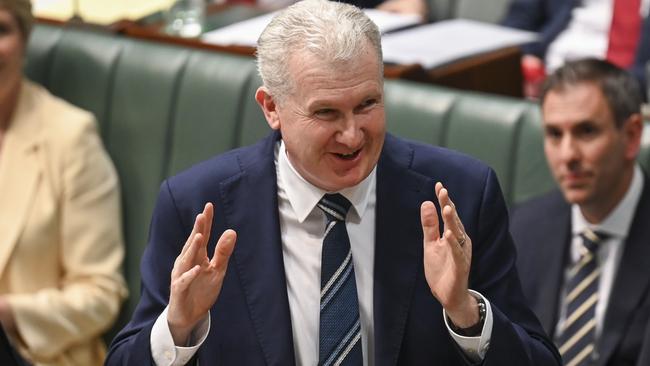
Employers wail they go too far. Unions insist they don’t go far enough. Take a helicopter view of the Albanese government’s industrial relations changes and it is undeniable they represent a decisive move away from the Coalition’s relentless anti-union approach towards the interests of workers and unions.
After securing passage of the first tranche of laws last year that delivered unions the bonus of multi-employer bargaining, Employment and Workplace Relations Minister Tony Burke introduced legislation this week that cracks down on exploitation of workers by labour-hire firms, provides minimum standards for gig workers, criminalises wage theft and proposes a fair, objective definition to determine when an employee can be classified as a casual.
Andrew Stewart, one of the nation’s leading experts on workplace law, says Labor’s agenda has swung the policy pendulum. “I think when you total up all the changes there is a really significant recalibration going on and, yes, it’s in favour of employees and unions,” Stewart tells Inquirer.
“It’s not completely neglecting the interests and wishes of employers but there is no doubt overall this is a Labor government making pro-worker and pro-union reforms to the extent that the Senate is going to allow. I don’t think there’s any doubt it’s a pretty significant shift.”
Emblematic of what business lobbyists decry is the government’s policy overreach in favour of Labor’s industrial wing is a proposal to formally enshrine rights for union delegates in federal law.
Employers are aghast, claiming unions with just one or two members at a workplace will be able to advocate to management on behalf of the entire workforce.
Based on his reading of the Closing Loopholes bill, Stewart says he can see why companies would see it as contentious and not just because they would have to provide paid training leave and access to facilities.
“The way the current system works, there is not a lot that unions can insist on doing within a workplace when they don’t have membership,” Stewart says.
“They can be bargaining representatives, but ultimately it’s the vote of the workers as a whole which determines whether an agreement gets up. They have got rights of entry but they’re for very specific purposes and with all kinds of limits.
“This is something more. This is saying you only need at least one member who is a delegate for the union to have the right to be seen as potentially advocating for the views of everyone in the workplace who is eligible for the same union. I expect some employers and some employer associations will see that as the thin edge of the wedge and will resist it.”
Burke, a former union organiser and union delegate, is a vocal supporter of union delegates. He says the laws the government passes “only matter if they reach every workplace. Union delegates make sure that happens.”
As to how the new rights would operate, Stewart lays out the following scenario: “An employee pops up and says to management, ‘Look, you don’t know this, but I’m telling you I’m a delegate of X union. So I want to start scheduling regular meetings to discuss the following topics. I’m also going to need access to your email system or your bulletin board for these purposes and I’m going to want time off for training.’ That might be one person. It might be more than one person who is saying that. You might have one union or more than one union. My point about this is it doesn’t have to be a critical mass. It can be a very small number of union members but the delegate still gets to advocate on behalf of everyone.”
Australian Industry Group chief executive Innes Willox says employers are deeply alarmed by the provisions and would oppose them “tooth and nail”.

“This is just a union recruiting tool which has massive implications around how businesses manage their relations with their workforce,” he says.
“This affects anyone who is eligible to be a union member so this will impact on non-unionised workplaces. This is a threshold issue for employers because it goes to their ability to manage and to protect their workforce from union influence.”
Australian Resources and Energy Employer Association chief executive Steve Knott says there is an “important historic distinction between union officials, who are funded by union members to conduct union business, and delegates who are paid by employers to work in the interests of their businesses”.
“The case for these blatantly pro-union changes has simply not been made,” Knott says. “Ninety-two per cent of private sector employees are not union members and therefore don’t fund union activities.
“The motivation is clearly not to increase productivity but to insert a union presence into every workplace in Australia. The endgame is to drive increased union membership, which in turn lifts political donations to the ALP.”
Introducing the bill into parliament, Burke linked the rights for delegates as a way to discover the underpayment of workers.
“A common feature of many high-profile wage underpayment cases is that, when they are discovered, we find the problem has been going on for years and years,” he said. “People are too afraid to speak up, and there are no processes in place to help them do so.
“We need to make sure that if someone is not being treated fairly at work, it’s discovered early. That’s why this bill contains important new protections and rights for workplace delegates, including paid access to relevant training – with small businesses exempt from this requirement.”
ACTU secretary Sally McManus says ensuring worker representatives are educated and supported to do their job is “essential to harmonious workplaces”.
“If the people who volunteer to represent other workers understand their rights and obligations, issues can be resolved quickly in the workplace and we won’t see issues like wage theft going on for years unresolved,” she says.
Australian Chamber of Commerce and Industry chief executive Andrew McKellar says the union delegate proposal underlines how the workplace changes in the first and second waves have “hugely” shifted policy in favour of unions.
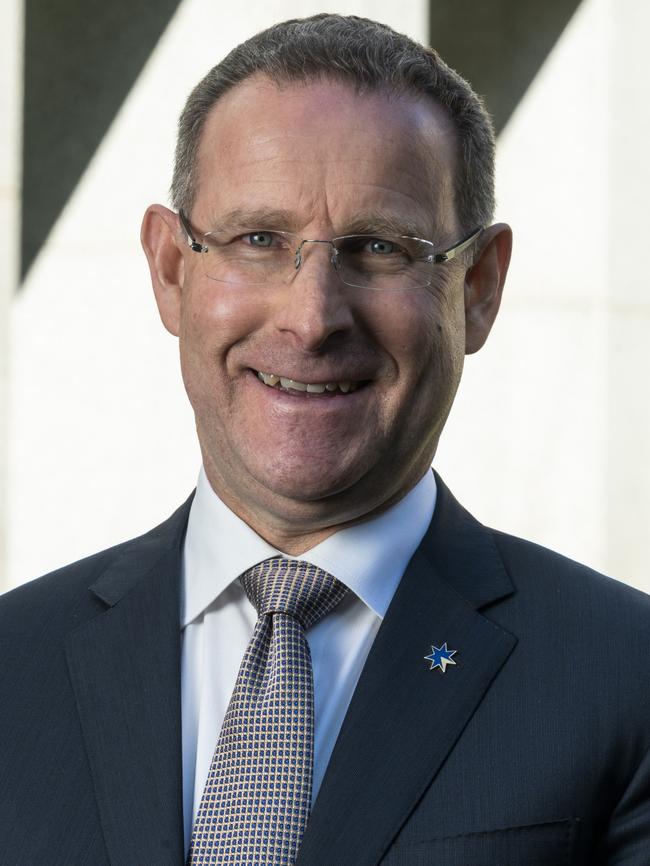
“It’s very poor legislation. It’s a clear overreach. It’s a clear sop to the union movement,” McKellar says, predicting the proposed minimum standards for employee-like work, especially in the care sector, would be a “complete dog’s breakfast in 12 months”.
McManus dismisses the employer claims the changes are too far-reaching.
“I’d say these lobbyists are paid a lot of money to do their job and that’s to deliver back no changes for the people who are paying them,” she says.
“They do not want to give pay rises. They don’t want things to change. We can see this in a day-to-day way with wage negotiations. This is just like wage negotiation happening on a much bigger scale so they’re coming together and throwing everything they’ve got to try and stop changes that mean they might have to pay workers more.”
Kos Samaras, strategy and campaigns director of RedBridge Group, says employer messaging that Labor should not be looking after its union mates but focus on the need to lift productivity might have resonated with older voters in a strong economy but is falling flat after years of low wages growth, corporate profiteering and a cost-of-living crisis.
“Union is no longer a bad word to the public. People don’t have a dire need to join but when you ask people what do unions normally do, they say: ‘They play a good role in society, they pressure governments to keep people’s wages up. I’m not a member. I’ll never be one.’ That’s effectively the response. Unions are not relevant to their lives but they are not looked upon in a negative way,” says Samaras, a former assistant secretary of the Victorian ALP.
“The public are pretty cynical. If I were to draw you a ladder and say on top the most trusted organisations are X and on the bottom the most distrusted are Y, corporates and employers would be down the bottom along with politicians.
“The social contract between the Australian public and the large corporations is completely broken. Particularly during this cost-of-living crisis people think: ‘They are gouging us, they are reporting mega-profits.’ There is no trust within the Australian public towards large corporations. Qantas is the poster child of why people don’t trust corporates.”
Samaras says employer messaging about the need to lift productivity is not resonating with workers, particularly in the outer suburbs “where we know people are working in excess of 40 hours a week and their wages are not going up”.

“Because employers have taken nearly all the productivity gains over the past decade, average workers are switched off to all their arguments about productivity. In fact, they see it cynically – just because productivity goes up doesn’t mean workers see any of it,” he says
McManus says workers often hear productivity as code for cutting pay and cutting job security.
“I think managers in Australia have taken the lazy, easy way of (casualising) jobs to cut wages rather than the harder way of increasing productivity, which means working closely and building trusting co-operative relationships with their staff, investing in training them, investing in talking through technological change and implementing it in ways that lead to greater productivity,” she says. “That’s hard work. It’s important work. It’s what needs to be done. Instead, they’ve just seen all of these loopholes they could exploit to drive down their wages bill and that’s what they’ve taken.”
McManus says the policy changes implemented by federal Labor will have a “significant positive impact for workers, but we’re a long way behind the eight ball”.
“From the unions’ perspective, look, it’s very good. Finally we have turned the corner in terms of this relentless, really 30 years of either going backwards and clawing things back, to now actually going forward, and that’s a very positive thing,” she says.
“Of course we would want more, but honestly the government has responded to problems that are there and they campaigned on, such as job security.
“The fact that wages weren’t moving for so long was a big problem. At some point there was always going to be a correction.”
Stewart says he expects many of the issues to be worked through and employers to push back on the delegates rights.
“We have all the sound and fury about casual changes which I think are overblown. I think there are some issues with the labour-hire provisions. The drafting is potentially problematic but I expect that to be addressed,” he says
“But I think at some point the debate is going to move on to the union delegate provisions. That’s something that is genuinely new. It’s just not something we have ever seen, to my knowledge, formally enshrined in law.”
According to the Department of Employment and Workplace Relations, the labour hire and gig economy changes will cost employers an estimated $900m a year in extra wages – $9bn across 10 years. Business groups say the estimates are greatly undercooked while unions say the costings show workers have been missing out on significant amounts of wages because of questionable employer practices.
Crossbenchers have combined with the Coalition to delay passage of the bill until next year, with a Senate inquiry not reporting until February.
Willox says a comprehensive inquiry is essential as the legislation is complex, convoluted and includes a series of fatal flaws.
“The proposals will not create a single job, do nothing to boost productivity, and will stifle innovation and create insecure work for tens of thousands of Australians who are currently comfortable with their employment arrangements,” he says.
But McManus accuses the Coalition of “inflicting more financial pain on Australian workers right at the time where they need support the most”.



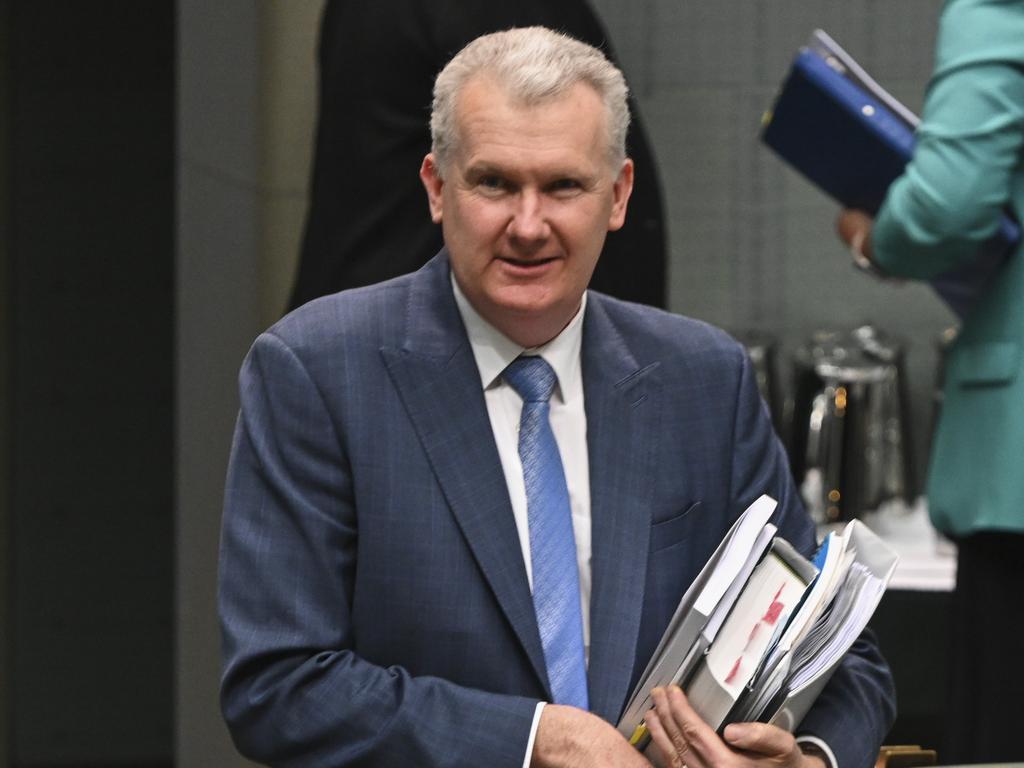
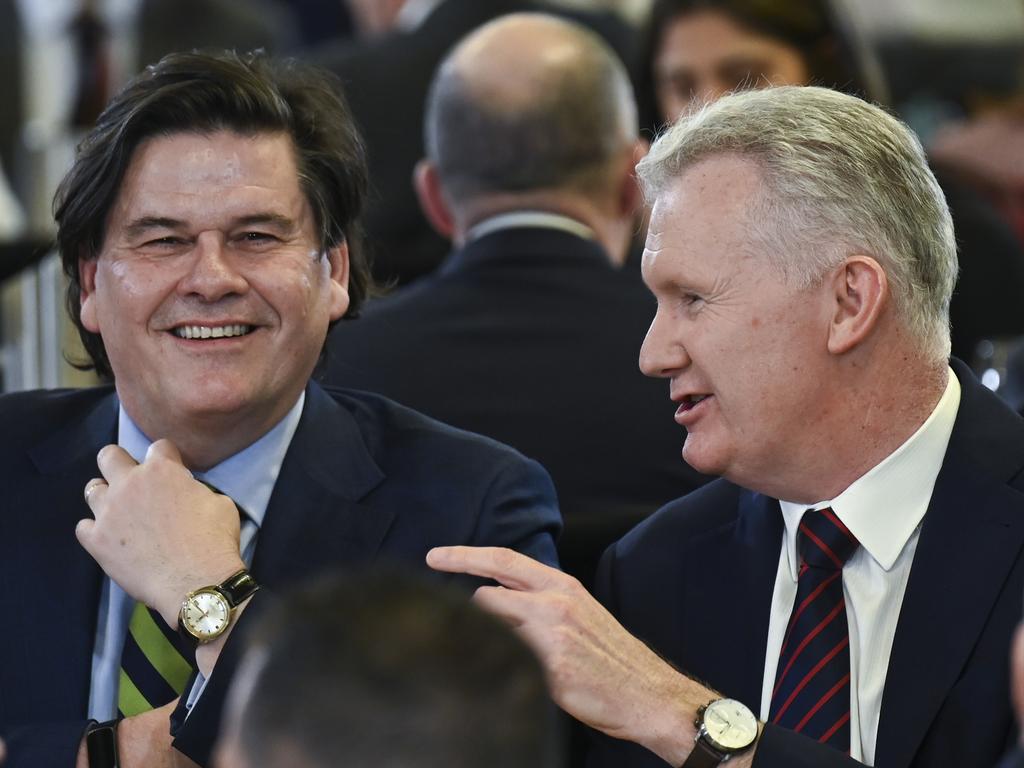
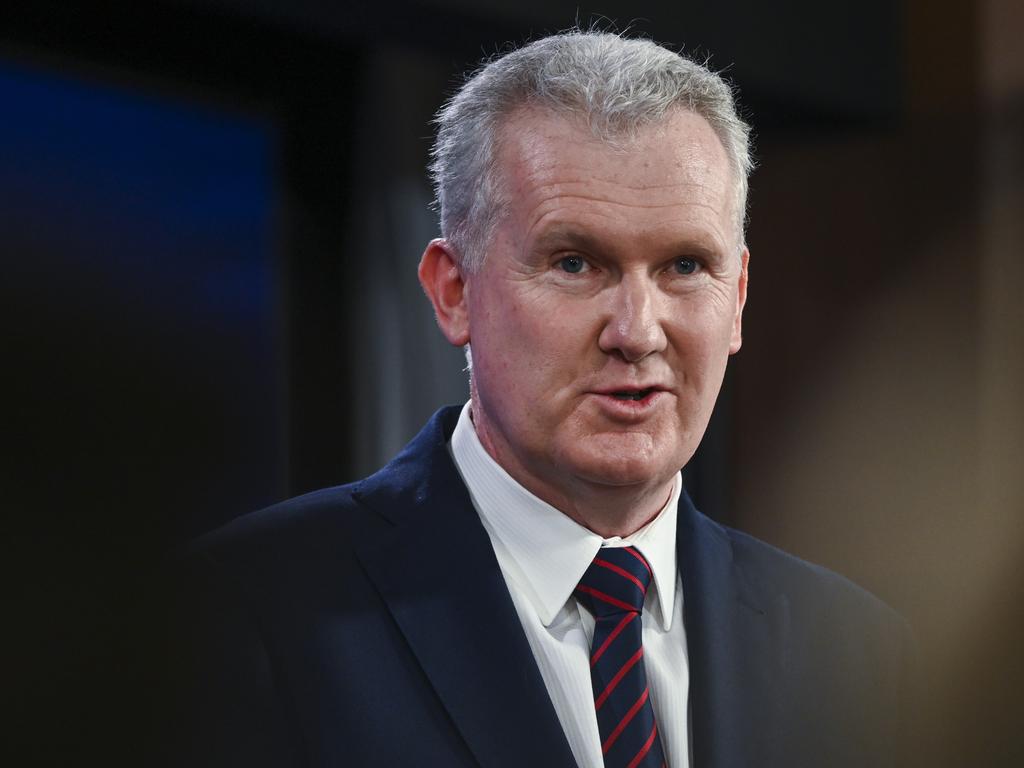


To join the conversation, please log in. Don't have an account? Register
Join the conversation, you are commenting as Logout